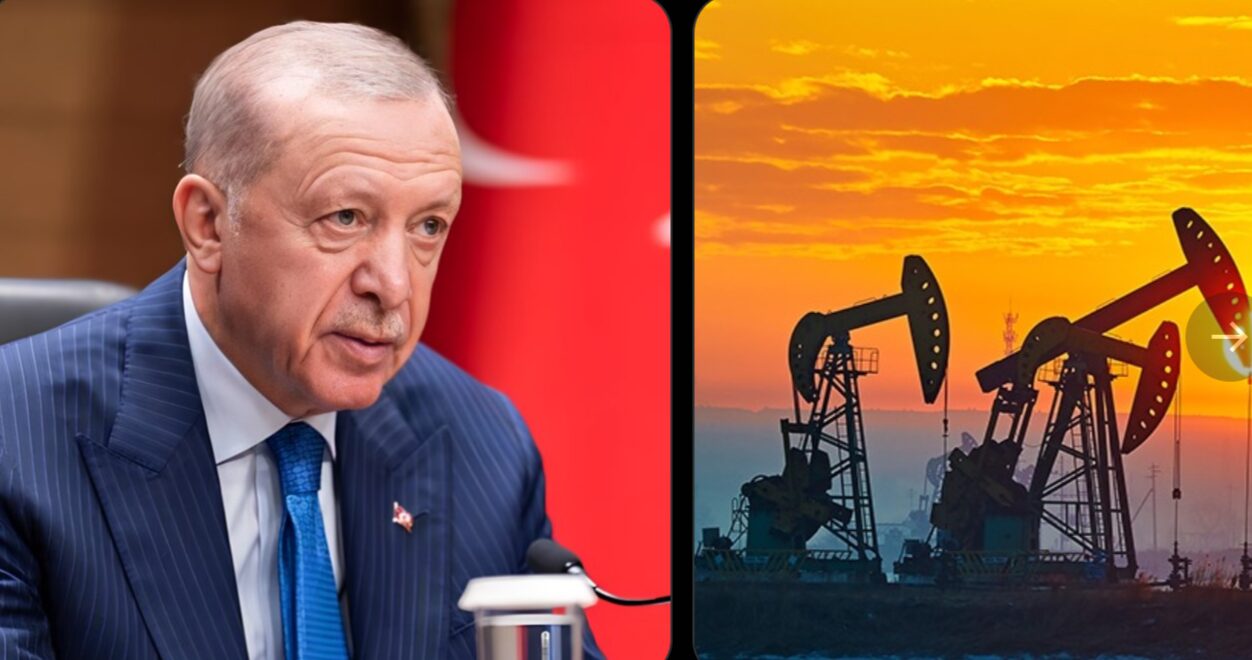SAUDI ARABIA has decided to CUT OIL PRODUCTION, causing a SPIKE in global oil prices
In a bold move that has sent shockwaves through the global energy markets, Saudi Arabia has decided to reduce its oil production, sparking a significant spike in oil prices. As the world’s largest oil exporter, Saudi Arabia’s decision has far-reaching implications, not only for global energy markets but also for the economies of oil-dependent nations. This move is a part of the Kingdom’s ongoing efforts to manage oil supply and influence global oil prices, as well as a response to the shifting dynamics of global energy demand.
With the production cut announcement, oil prices surged, reflecting the market’s sensitivity to any changes in Saudi Arabia’s oil output. As the Organization of the Petroleum Exporting Countries (OPEC)’s most influential member, Saudi Arabia’s decisions often set the tone for global oil markets. But what exactly does this production cut mean for the global economy, oil-consuming nations, and the future of energy markets?
The Production Cut: Details and Motivations
Saudi Arabia’s decision to cut oil production by a substantial amount came as part of a broader strategy to support oil prices, which have experienced volatility in recent months. The exact volume of the cut varies, but sources report that Saudi Arabia plans to reduce its production by approximately 1 million barrels per day (bpd). This cut is expected to extend at least into the first quarter of 2024, although further adjustments are possible depending on global market conditions.
The decision comes in the wake of a period of relatively low oil prices, which have been influenced by factors such as fluctuating global demand, economic uncertainty, and rising competition from other oil-producing nations. Saudi Arabia, through its position within OPEC+, has been actively working to stabilize prices and manage supply in a way that ensures its own economic stability. This production cut signals that the Kingdom is willing to take aggressive action to maintain oil prices at levels that benefit its budget and economic objectives.
The Immediate Impact on Global Oil Prices
The announcement of Saudi Arabia’s production cut has already caused a sharp spike in global oil prices. Following the news, Brent Crude, the global benchmark for oil prices, surged above $90 per barrel, and WTI (West Texas Intermediate) crude followed suit, reaching its highest level in months. The immediate reaction in the oil market reflects the vulnerability of global oil prices to supply disruptions or reductions, particularly when the producer making the cut is as influential as Saudi Arabia.
Oil prices are fundamentally driven by supply and demand dynamics, and any reduction in supply can lead to higher prices, especially if the global demand for oil remains steady or rises. Saudi Arabia’s move to reduce production is designed to achieve two main objectives: reducing oversupply in the market and driving prices higher to support its national revenue, which is heavily reliant on oil exports.
Global Reactions: Impact on Oil-Consuming Countries
While Saudi Arabia’s production cut benefits oil-exporting nations by driving up oil prices, it creates challenges for oil-consuming countries, particularly those with less leverage in the global market. For major economies such as the United States, China, and the European Union, higher oil prices translate directly into higher transportation and energy costs, contributing to inflationary pressures.
The U.S., in particular, has historically sought to avoid significant spikes in oil prices, as this can impact its economy by raising the costs of fuel, transportation, and manufacturing. In response to rising oil prices, the Biden administration has often considered releasing oil from the U.S. Strategic Petroleum Reserve (SPR) to mitigate supply shortages and keep prices from surging out of control.
In Europe, countries that have already faced energy crises and high costs due to the war in Ukraine will feel the strain of rising oil prices. For China, the world’s largest oil importer, higher prices could affect the country’s economic recovery, particularly as it seeks to balance domestic growth with global energy costs.
The ripple effects of Saudi Arabia’s decision may also lead to political pressure on governments, which may find themselves under scrutiny for rising fuel prices and their impact on households and businesses.
OPEC+ and Saudi Arabia’s Strategic Goals
Saudi Arabia’s production cut is part of a broader strategy within OPEC+ (the coalition of OPEC members and other oil-producing nations, including Russia). OPEC+ has been engaged in a delicate balancing act, managing production levels and seeking to prevent both excessive oversupply and underproduction, which can disrupt prices and destabilize the market. Since 2020, the organization has worked to limit oil production in response to the economic impacts of the COVID-19 pandemic, and this latest production cut continues that trend.
The Kingdom of Saudi Arabia, under the leadership of Crown Prince Mohammed bin Salman, has consistently emphasized the importance of maintaining oil prices at levels that can fund its ambitious Vision 2030 reform agenda. This program aims to diversify the Saudi economy away from oil dependency, but it still relies heavily on oil revenues to fund government initiatives, infrastructure projects, and investments. With oil accounting for a significant portion of the government’s income, ensuring that prices stay high is critical to Saudi Arabia’s long-term economic stability.
Long-Term Implications for the Energy Market
While the immediate impact of Saudi Arabia’s production cut is a rise in oil prices, the long-term effects on the energy market remain to be seen. As global energy demand continues to evolve, particularly with the rise of renewable energy sources and electric vehicles, the role of oil in the global energy mix is gradually shifting.
Saudi Arabia’s decision to cut production could signal the Kingdom’s intention to maintain its dominance in global oil markets for the foreseeable future. However, it also highlights the ongoing vulnerability of the global energy system to the actions of key producers. For the United States, the rise of shale oil production has positioned it as a major player in the global market, and any price hikes can trigger increased production to meet demand. Meanwhile, countries like China are working to increase their energy independence by investing in renewable energy and alternative fuels, which could reduce their reliance on oil imports over time.
The rise of alternative energy sources, such as wind, solar, and nuclear, poses a longer-term challenge for oil-producing nations like Saudi Arabia. As the world increasingly turns toward decarbonization, the demand for oil could face structural declines in the coming decades. Nevertheless, in the short and medium term, Saudi Arabia’s control over oil production remains a key factor in shaping global prices.
The Future of Oil Prices and Global Energy Stability
In the immediate aftermath of Saudi Arabia’s decision to cut oil production, global oil prices are likely to remain elevated, which could contribute to inflationary pressures across the globe. However, the longer-term effects of this decision will depend on various factors, including the pace of global economic recovery, geopolitical developments, and the ongoing transition to cleaner energy sources.
As the world watches Saudi Arabia’s next moves, it is clear that the Kingdom’s decisions will continue to play a crucial role in determining the future of global oil prices and the broader energy market. For oil-dependent countries, higher prices present challenges, but for oil exporters like Saudi Arabia, they represent an opportunity to secure economic stability and generate the revenue necessary to fund their development goals. In the coming months, the global community will be closely monitoring the evolving dynamics of Saudi oil policy and its effects on the broader energy landscape.

















Post Comment